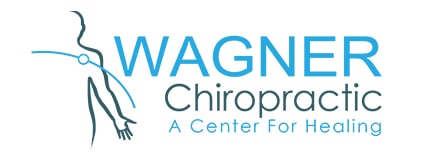Epigenetics Applied: The Chiropractic Natural Way of Life

Epigenetics(1) in very colloquial lay terms is the study of biological mechanisms that switch genes on and off.
“Epigenetics is best defined as the study of changes in organisms brought about by modification of gene expression, rather than by alteration of the genetic code in the form of DNA. The term ‘epigenetic’ was originally coined in the 1950s and used to denote the way that genes interact with the environment, in order to produce each individual phenotype.(2)”
- JOHN LAUNER, PHYSICIAN, THERAPIST, EDUCATOR AND WRITER
The word epigenetic literally means “in addition to changes in genetic sequence.” The term has evolved to include any process that alters gene activity without changing the DNA sequence and which leads to modifications that can be transmitted to daughter cells. In other words, epigenetics is essentially additional information layered on top of the sequence of letters (strings of molecules called A, C, G, and T) that makes up DNA.
Epigenetics suggests that gene functions can be altered by more than just changes in the DNA sequence(3).
“Today, a wide variety of illnesses, behaviors, and other health indicators already have some level of evidence linking them with epigenetic mechanisms, including cancers of almost all types, cognitive dysfunction, and respiratory, cardiovascular, reproductive, autoimmune, and neurobehavioral illnesses. Known or suspected drivers behind epigenetic processes include many agents, including heavy metals, pesticides, diesel exhaust, tobacco smoke, polycyclic aromatic hydrocarbons, hormones, radioactivity, viruses, bacteria, and basic nutrients.”
- BOB WEINHOLD, EPIGENETICS: THE SCIENCE OF CHANGE
The following title of a New Scientist article conjures a picture in our minds that may generally describe the concept of epigenetics in a nutshell:
“How to change your genes by changing your lifestyle: Your penchant for doughnuts or your gym addiction could have effects way beyond your waistline. They could have cascading effects on your unborn children.”
Long before epigenetics became a science, Charles Darwin himself suggested that lifetime experiences could create “gemmules” which attached themselves to eggs and sperm and affect offspring as a direct result.
Any outside stimulus that can be detected by the body has the potential to cause epigenetic modifications.
As cases in point, Launer cites two studies with mice:
“When pregnant mice are fed with Bisphenol A, a toxic ingredient of plastics, the resulting adverse effects appear not only in their offspring but also in the following generation. These include obesity, diabetes, an increased frequency of cancer, and yellow fur instead of brown.(4) In another much quoted experiment, researchers claimed to show that mice bred from fathers who had been trained to become afraid of a particular smell also showed avoidance of the same smell–although it is hard to understand how such a specific outcome could be achieved through known molecular mechanisms.”
Understanding and applying our knowledge of epigenetics tends to boost one’s sense of control. We begin to embrace that we and our heirs are not necessarily confined to arbitrary effects of our genome or our upbringing. By utilizing the knowledge about ourselves that we gain from genetic testing, we become able to positively influence and possibly even transform our wellness at the cellular level.
At Wagner Chiropractic in Eustis we offer nutrigenetic testing to provide valuable insights on your current health, causes of conditions and possible lifestyle changes you might make to positively affect your health. Nutrigenetic testing assists us to augment and amplify our treatment mechanisms at Wagner Chiropractic. By specifically gauging our patients’ profiles through such testing we can offer a more targeted and logical wellness platform for you rather than offer a one-size-fits-all regimen.
Nutrigenetic testing often leads us to very customized nutrition and supplementation counseling. There might be a strategic wellness benefit that can guide the kinds of foods you’re eating. It could make a significant impact on your weight management goals.
It is also possible you might want come to us for testing simply because you want to scientifically look at your DNA and find out what you need to do to look and feel your best.
And when we understand epigenetics, we know that we just may be actually controlling our genes through positive lifestyle modifications. We may, in fact, turn on genetic predispositions for diseases or turn off genes by our lifestyles and choices. And even after having a disease, by improving our health we can alter our genetics. We are not genetic automatons but are responsible for our health. Even though having this responsibility is great it gives us a chance to define our own health destinies through the lifestyle and health choices we make each day.
- the study of changes in organisms caused by modification of gene expression rather than alteration of the genetic code itself: epigenetics has transformed the way we think about genomes.
- the set of observable characteristics of an individual resulting from the interaction of its genotype (the genetic constitution of an individual organism, often contrasted with phenotype) with the environment.
- Gene sequencing is the process of ascertaining the sequence of nucleotides in a segment of DNA. Nucleotides form the basic structural unit of nucleic acids (small biomolecules, essential to all known forms of life) such as DNA.
- Morgan HD, Sutherland HE, Martin DIK, et al. Epigenetic inheritance at the agouti locus in the mouse. Nat Genet1999; 23:314–8.
- Dias BG, Ressler KJ. Parental olfactory experience influences behavior and neural structure in subsequent generations. Nat Neurosci 2014; 17:89–96.
Endnotes:
Weinhold, Bob. “Epigenetics: The Science of Change.” Environmental Health Perspectives, U.S. National Library of Medicine, March 2006, https://www.ncbi.nlm.nih.gov/pmc/articles/PMC1392256
Arney, Kat. “How to change your genes by changing your lifestyle.” New Scientist Magazine, 9 Dec. 2015. https://bit.ly/2Bjwhvo
Ennis, Cath. “Epigenetics 101: a beginner’s guide to explaining everything.” The Guardian, 25 April 2014. https://www.theguardian.com/science/occams-corner/2014/apr/25/epigenetics-beginners-guide-to-everything
Launer, John. “Epigenetics for dummies.” Postgraduate Medical Journal. Volume 92, Issue 1085. March 2016. https://pmj.bmj.com/content/postgradmedj/92/1085/183.full.pdf
Morgan HD, Sutherland HE, Martin DIK,et al.Epigenetic inheritance at the agouti locus in themouse.Nat Genet1999;23:314–8.
Dias BG, Ressler KJ. Parental olfactory experienceinfluences behavior and neural structure insubsequent generations.Nat Neurosci2014;17:89–96.
OFFICE HOURS
Monday
7:15am - 4:30pm
Tuesday
7:15am - 4:30pm
Wednesday
Closed
Thursday
7:15am - 4:30pm
Friday
7:15am - 3:30pm
Saturday
Closed
Wagner Chiropractic
2775 South Bay Street
Eustis, FL 32726
(352) 589-5443



